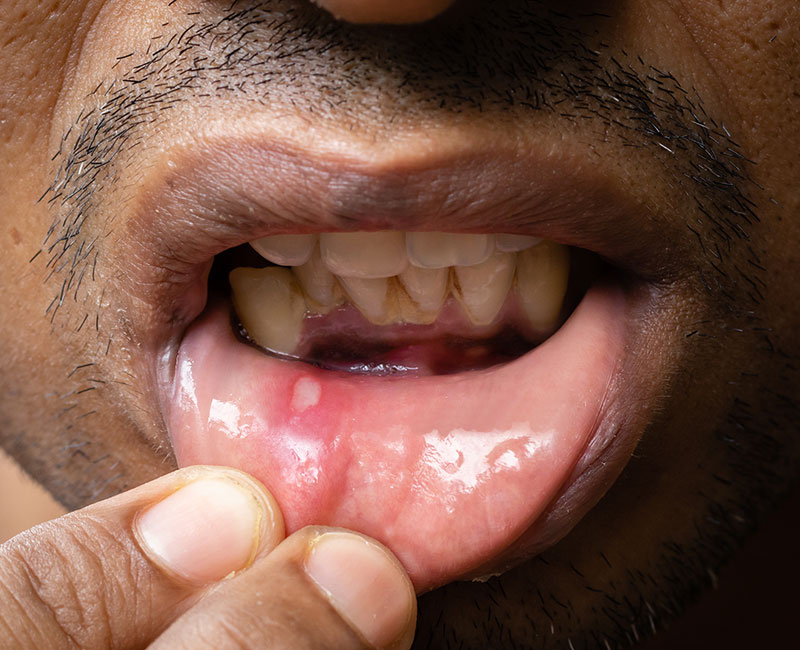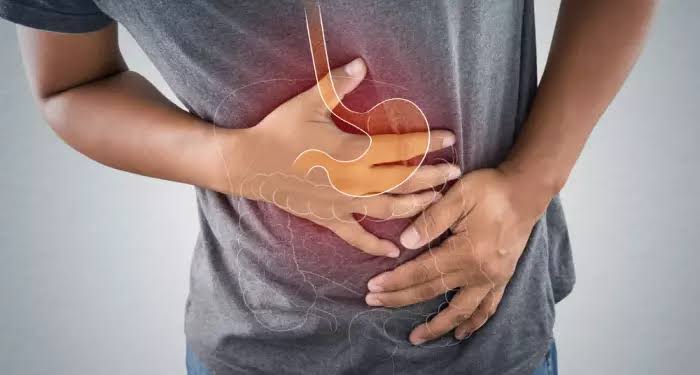Ulcer occurs when the lining of the digestive tract is damaged by our stomach acid. An ulcer is a sore or open wound that occurs on the skin or mucous membrane. It is commonly used in relation to health to describe wounds that form on the inside lining of the stomach, small intestine, or esophagus, known as peptic ulcers. These can be caused by factors such as infection with Helicobacter pylori bacteria (a type of bacteria that infects the stomach), long term use of certain medications, or excessive stomach acid production. Generally, when most people hear the world ulcer, what comes to their mind is the stomach ulcer which is known as peptic ulcer and this is the most common type of ulcer. For this purpose, this article was put together to unveil us to the numerous types of ulcer, their causes and ways to manage them.
PEPTIC ULCER/ STOMACH ULCER
A peptic ulcer is a sore that forms on the lining of the stomach, small intestine, or esophagus. It is usually caused by the erosion of the protective layer of mucus (a thin, clear liquid consisting of water, salts, and protective immune cells), allowing stomach acid to damage the underlying tissue. Common symptoms include burning stomach pain and indigestion. Helicobacter pylori infection or prolonged use of nonsteroidal anti-inflammatory drugs (NSAIDs) can contribute to the development of peptic ulcers. There are two types of Peptic ulcer which are Gastric Ulcers and Duodenal Ulcers.
Treatments
- Use of Antibiotics: If the ulcer is caused by Helicobacter pylori (H. Pylori) infection, a course of antibiotics is prescribed to eliminate the bacteria.
- Acid-reducing medications: there are drugs prescribed for the purpose of acid reduction. Example of these drugs includes; Proton pump inhibitors (PPIs): These drugs reduce stomach acid production and help the ulcer to heal. Histamine-2 (H2) blockers: These medications also decrease stomach acid production, promoting ulcer healing.
- Antacids: Over-the-counter antacids can provide short-term relief by neutralizing stomach acid. They do not heal the ulcer but can alleviate symptoms.
- Lifestyle modification: Abstain from substances that can irritate the stomach, such as tobacco and alcohol.
- Dietary changes: Some people find relief by avoiding spicy foods, caffeine, and acidic foods.
- Follow-up care: Regular check-ups with a healthcare professional are essential to monitor progress and adjust the treatment plan if needed.
It is advisable to follow your doctor’s recommendations and complete the prescribed course of medications even if symptoms improve, to ensure the ulcer heals completely.
MOUTH ULCERS/CANKER SORES
Mouth ulcer is a painful sore inside the mouth usually on the inner lips, gums, tongue, roof of the mouth or throat that may cause one not to eat comfortably. Causes can vary from burns in the mouth, biting the tongue or cheeks, eating acidic food like sour sweets, pineapple, etc.
Treatments
When it comes to mouth ulcer, there isn’t any specific cure/ treatment but they can be managed at home with some basic steps:
- Maintaining oral hygiene
- Avoid irritants like spicy, acidic or rough textured foods that can worsen the ulcer.
- Abstain from tobacco and alcohol consumption
- Stay hydrated
- Use prescribed oral paste from your physician.

VENOUS ULCER/STASIS ULCER
Venous ulcers can occur as a result of abnormal vein function. It is a wound on the leg or ankle caused by abnormal or damaged veins. It can be caused by Blood clots, injury, ageing and even obesity.
Treatments
Treatments of venous ulcer includes:
- Compression therapy which can help improve blood circulation and reduce swelling.
- Proper care of wound
- It is advisable to keep wounded leg elevated so as to help reduce swelling and improve blood flow
- Following medications as prescribed by a healthcare professional.
- Regularly exercising to improve blood circulation
- Maintain a healthy diet to improve overall wellbeing.
- Venous surgery (if necessary)
DIABETIC FOOT ULCERS
Most diabetic people develop diabetic foot ulcers, which are open wounds or sores that are typically found on the bottom of the foot. Its causes could be Neuropathy (nerve damage) and poor blood circulation related to diabetes.
Treatments
- Wound care and infection control goes a long way in managing diabetic foot ulcer.
- Antibiotics may be prescribed by physician for the infection.
- Managing blood sugar level through medications, diet and exercise.
- Consult your physician.
ARTERIAL ULCERS
An arterial ulcer is a severely painful, deep sore in the skin usually on the lower leg or foot. In most cases, arterial ulcer does not heal as one would expect an ordinary wound to heal. This is because of the lack of blood flow to the area the sore is situated. Its causes could be as a result of poor blood circulation in the arteries, often in the lower extremities or as a result of Peripheral Arterial Disease (PAD).
Treatments
Treatments of arterial ulcer is majorly focused on improving blood circulation and consultation of healthcare professionals.





